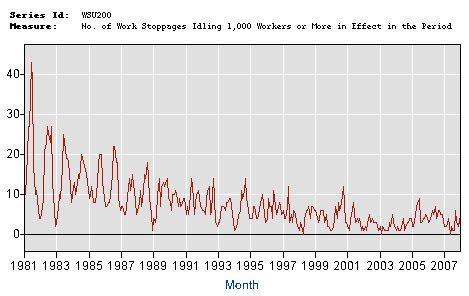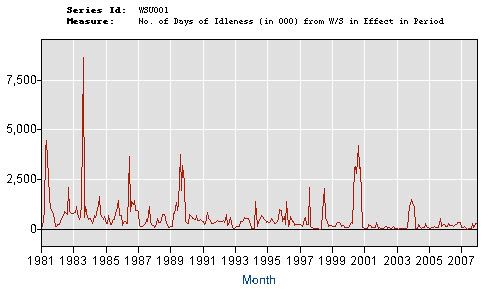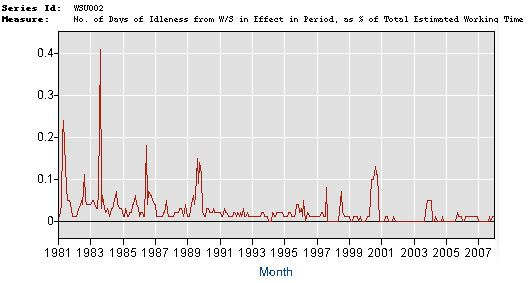The face of that hope is Barack Hussein Obama. Hamid Dabashi concludes, after detailing Obama's "limits":
Two of my three children (born and bred here in the United States) have now reached the age when they can vote. They are both committed Obama fans and voted for him in the New York primaries on Super Tuesday. At this point, I am afraid the votes of my two children are all I can offer Brother Barack. Come next November, I too may leave my own darkest convictions behind and vote with the bright hope of my children.But what has Obama really done to inspire this hope?
Sometimes I think that the worst thing about the United States is that there is always hope for it. ("The Limit of Obama's Imagination," Al-Ahram Weekly 885, 21-27 February 2008)
The only things that I can think of are (1) he is neither Hillary Rodham Clinton, who voted for the Iraq War and the Kyl-Lieberman amendment declaring Iran's Revolutionary Guards a terrorist organization, nor John McCain, who wants Americans to stay in Iraq for 100 years and jokes about bombing Iran; and (2) he says he would meet with the President of Iran and other designated enemies of the United States.
Then again, Obama has voted for all Iraq war appropriations since his arrival in the Senate, wants tougher sanctions against Iran, and won't meet with Hamas (unlike 64% of Israelis in favor of negotiation with the organization).
While the prices of fuels, food, and just about everything are going up, the price of hope is evidently indexed to the dollar and home equity.

Source: Sudeep Reddy and Sara Murray, "Housing, Bank Troubles Continue to Deepen," Wall Street Journal, 10 March 2008
What are US leftists to do?
There is the Ralph Nader/Matt Gonzalez campaign.
Gonzalez is probably the most intelligent voice (and attractive face!) on the electoral front against bipartisan oligopoly.
But our Guardian Council, aka the US ruling class, more zealously excludes opposition than the Guardian Council of Iran.
Besides, no motion in the streets, no commotion in elections. Americans have just about forgotten the art of industrial action and street demonstration, unlike Iranians. To take an example, teachers in Iran had a strike last year, shutting down "an estimated 80 percent of Iran's public schools." Impressive. When was the last time any sector of American workers did anything like that?
The Bureau of Labor Statistics' data show a radical decline of work stoppages: now virtually no work time is lost to industrial conflict in the USA.
As workers have increasingly lost their capacity for concerted industrial action, the share of national income going to their wages and salaries has naturally declined. On 29 March 2007, the Center on Budget and Policy Priorities reported: "the share of national income going to wages and salaries in 2006 was at its lowest level on record, with data going back to 1929. The share of national income captured by corporate profits, in contrast, was at its highest level on record" (Aviva Aron-Dine and Isaac Shapiro, "Share of National Income Going To Wages And Salaries At Record Low In 2006: Share of Income Going to Corporate Profits at Record High," 29 March 2007). See Appendix Table 3 of the CBPP report below.
The top US union officials propose to support Iranian workers. The quality of their leadership of dollars-and-cents struggles, let alone class struggle, stateside, however, makes that a very doubtful proposition.
The same can be said about US leftists, most of whom would say that we must -- must! -- fight with Iranian workers against their ruling class while also fighting against our ruling class. To them I offer this anecdote:
[During the Civil War,] the secretary of state, William Seward, wanted to declare war on England and was supposedly restrained only by Lincoln himself ("One war at a time, Mr. Seward"). . . . (Geoffrey Wheatcroft, "Our Imaginary Friend," International Herald Tribune, 19 September 2007)Given the chronic shortage of our troops, leftists might take a page from Lincoln: one war at a time.









No comments:
Post a Comment